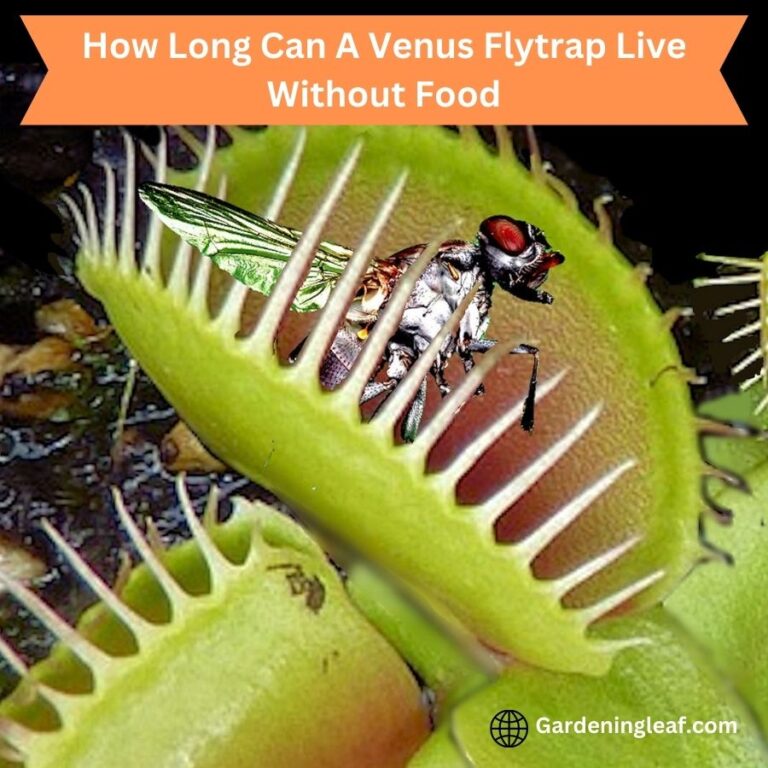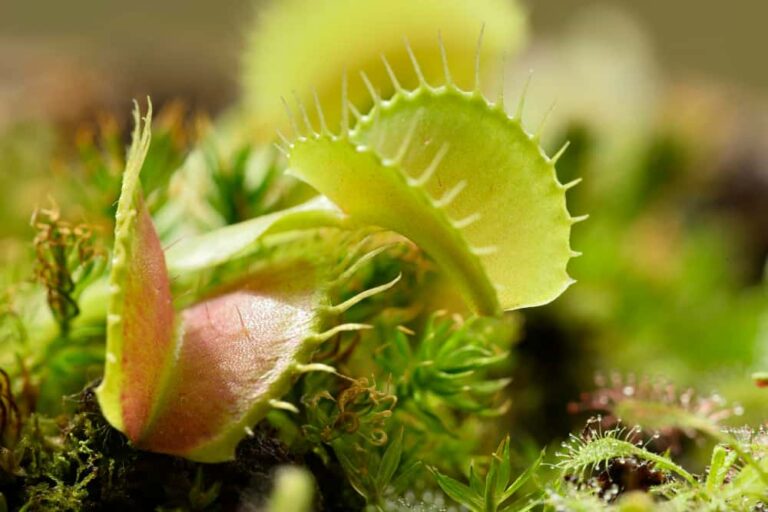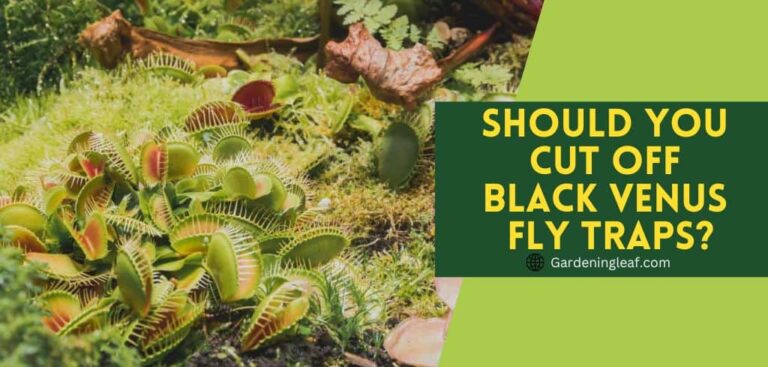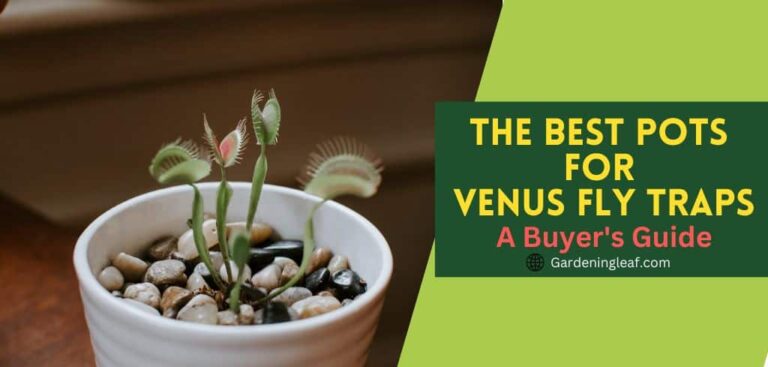Do Venus fly traps eat mosquitoes, Flies, And Gnats? – A Detailed Answer
Are you having an ongoing problem with pesky flying insects around your home and looking for a solution? We all know the frustration of dealing with buzzing mosquitoes and pesky flies and often turn to press control as a quick and easy solution.
A plant known as the Venus Flytrap can do the job for you! Not only is it a natural and safe solution, but it will also help you get rid of those mosquitoes and flies without harming your body.
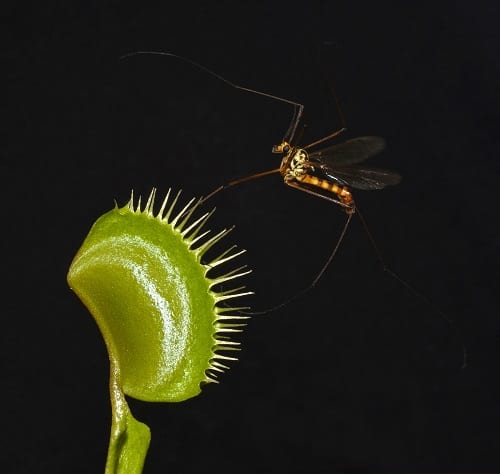
With the proper care and attention, these carnivorous plants have been known to help reduce the number of flies, gnats, and mosquitoes taking up residence around your home. We have researched and gathered all the information you need about Venus flytraps and how to care for them correctly.
So, Do Venus fly traps eat mosquitoes? In this post, we will explore the incredible carnivorous habits of Venus Flytraps and how they use their traps to feed on different types of insects, such as mosquitoes, flies, and gnats. Prepare to be amazed by the remarkable adaptations of these plants as we dive into their fascinating world!
Read More :- How Long Can A Venus Flytrap Live Without Food
Do Venus Fly Traps Eat Mosquitoes , Flies, And Gnats?
Yes, Venus flytraps Do Venus fly traps eat mosquitoes, flies, and gnats. To trap prey, the Venus flytrap uses it’s unique ‘snap’ reflex. It opens its mouth rapidly, exposing sharp edges on the edges of the trap. When a prey item touches these edges and trigger hairs, the ‘snap’ it is quickly crushed and digested by digestive enzymes secreted from the plant’s leaves. The plant does not have teeth but relies on these reflexes to capture and kill prey items.
These tiny insects are attracted to the plant by its nectar and other scents, making plentiful prey for Venus flytraps. The small size of the insects makes them easy to catch, and the Venus flytrap’s sensitive hairs ensure that these insects don’t get away once they land on the leaf.
Despite their small size, mosquitos, flies, and gnats can provide Venus flytraps with good nutrition. These insects are high in proteins and fats necessary for Venus flytraps. Additionally, these insects contain certain minerals that the plant would otherwise have difficulty obtaining from the soil.
Read More :- How to Grow a Venus Fly Trap from a Seed
Are Venus Flytraps Good For Pest Control In Homes?
You are somewhat wrong if you think Venus Flytraps catch and control all your houseflies.
Yes, Venus flytraps are good for catching and digesting a few bugs, but if you think they will solve your mosquito problem at home, you have made a mistake. They won’t be able to consume enough bugs to reduce the population.
An organism can spend months without food and take three to five days to digest a Venus flytrap. So if you think it solves all your problems, then reality few what you think.
To ensure that pests are effectively eliminated, try a combination of methods, such as an indoor bug trap or a fruit fly trap. If these methods do not suffice in reducing the infestation, it is recommended to contact your local pest control company for professional advice. Doing so will ensure that the pests are removed most efficiently and effectively as possible.
What Bugs Will A Venus Flytrap Eat?
For nutritional reasons, the Venus flytrap is an insectivorous plant that will eat a variety of insects. These are some of the options:
- Mosquitos
- Spiders
- Flies
- Fruit flies
- Beetles
- Ants
- Grasshoppers
- Gnats
It is important to note that the Venus flytrap should only consume a few insects per week and not be overfed, or it can become unhealthy.
Read More :- The Best pots for venus fly traps: A buyer’s guide
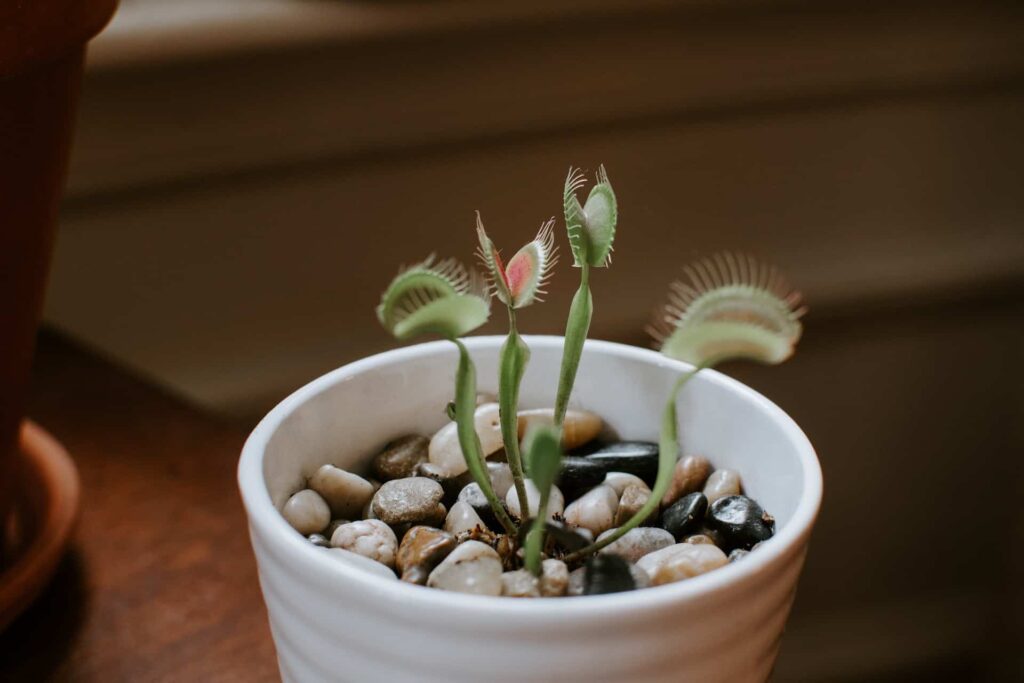
Does any other plant catch insects?
Yes, some plants are known to catch insects. Venus flytraps, sundews, drosera capensis, and butterworts are carnivorous plants that catch insects by luring them in with sweet nectar and trapping them with sticky leaves. Several pitcher plants, like sarracenia, with leaves, act like pitchers, trapping insects when they fall inside.
When does a venus flytrap eat?
On average, a Venus flytrap needs to eat about once every 7 to 14 days to stay healthy and thrive. The precise frequency, however, may change based on the season, the size of the plant, and other environmental circumstances. To ensure your flytrap is getting the nutrition it needs, it’s best to keep an eye on the plant and adjust its diet accordingly.
Are There Risks To Humans From Venus Flytraps?
No, Venus Flytrap plants pose no risk to humans.
The flytrap lacks the strength to cause any damage to a human and cannot do anything if you put your finger or anything else in it.
Do Venus Flytraps Need To Be Fed?
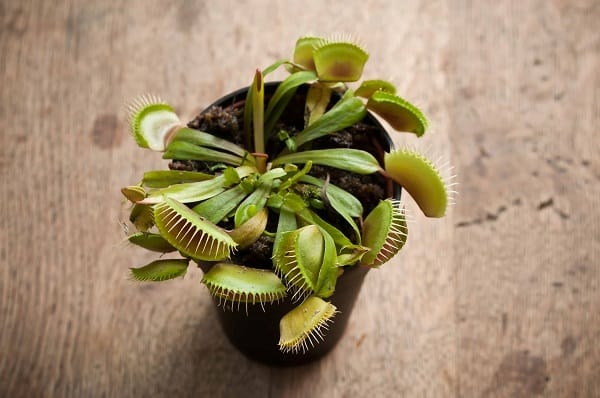
Feeding your Venus Flytraps is recommended regularly, at least once a week to two weeks. This will guarantee that your plants receive the nutrients they need to develop fast and healthily. If the plant is kept outdoors in the summer, it should be able to catch its prey, but it is still recommended to feed it regularly to optimize its growth rate. But still, they can live without eating a single insect in their enter lifespan.
Do Venus Flytraps Locate In The Wild?
Yes, Venus flytraps are natively found in the wild in parts of the east coast of the USA, mainly in North and South Carolina. They can be found in wet, sandy areas, and they prefer acidic, nutrient-poor soils.
Will Venus Fly Traps miss out on nutrition if I don’t feed them a mosquito?
No, Venus Fly Traps will not miss out on nutrition if you do not feed them a mosquito.
What Type Of Pot Does The Venus Flytrap Need?
The Venus Flytrap needs a pot with a shallow depth and good drainage.
Read my post you will get detailed information.
How long does a Venus flytrap live?
A Venus flytrap may survive up to 20 years in the wild. However, the lifespan depends on the environment and the care it receives. Maintaining proper humidity and providing adequate sunlight can help extend the life of a Venus flytrap.
Can venus flytraps eat mealworms?
Mealworms are not suitable for Venus flytraps. Because Mealworms can easily burrow out of the traps, and crickets can move too quickly to be effectively caught. For this reason, feeding them dried or frozen insects or specially designed carnivorous plant food is usually better.
Can venus flytraps eat fruit?
No, fruit does not fall within the dietary range of venus flytraps. However, some growers recommend putting a piece of fruit in the trap to increase its attractiveness to prey. To ensure a healthy and happy Venus fly trap, it is important to avoid feeding it fruit. Fruit can harm the plant in the long run.
Can venus flytraps eat meat?
Venus flytraps cannot eat meat. Meat contains high levels of salt and other minerals that can harm the trap mechanism. Additionally, venus flytrap prey items are typically small insects, and carnivorous plants do not consume large amounts of meat.
Can venus flytraps survive without bugs?
Yes, Venus flytraps can survive without bugs, although they won’t be able to thrive without them. Venus flytraps rely on insects for nutrition, so without them, they won’t get the nutrients they need to stay healthy. To compensate, you can feed your plant a mixture of liquid fertilizer, soil, and water. This will allow them to stay healthy and nurtured. However, they can still survive in an environment without bugs.
Can a Venus flytrap eat eggs?
A Venus flytrap cannot consume eggs. Never give any form of human food to your Venus flytrap because it is not suited to it. The leaves may eventually turn black and die if you do this. Stick to giving your Venus flytrap natural insect-based food sources like flies and spiders for optimum health.
Can venus flytrap eat human blood?
Can venus flytraps eat dead bugs?
Yes, Venus flytraps can eat dead bugs. They prefer them to live ones. Dead bugs provide more nutrition for the plant, and the plant does not have to expend energy to catch them. However, it is recommended to feed Venus Flytraps a mix of live and dead bugs for the best nutrition.
Conclusion
Though it is important to note that Venus fly traps are not a reliable way to control mosquito populations, they can be a fun and interesting addition to your home garden.
Source :- https://www.wikihow.com/Grow-a-Venus-Flytrap#Planting-a-Venus-Flytrap

